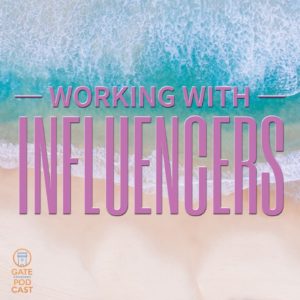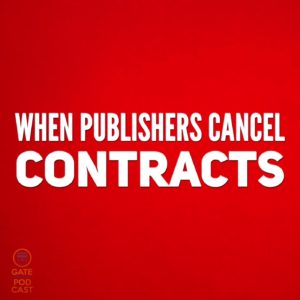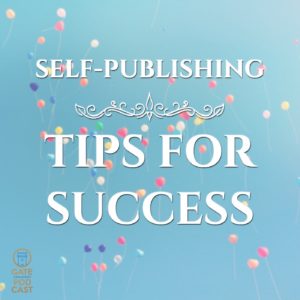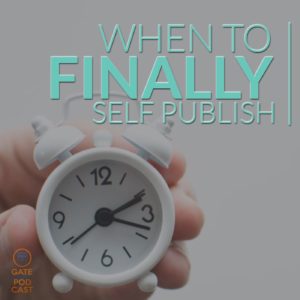-
Continue Reading "How to Use Influencers to Sell Your Book"
How to Use Influencers to Sell Your Book
 Your publisher asks for your influencer list. They also want ideas for things that will excite your influencers.
Your publisher asks for your influencer list. They also want ideas for things that will excite your influencers.You panic.
You don’t know any celebrities.
You don’t have home addresses for the kings and queens of social media.
And you certainly don’t have any ideas beyond sending out a copy of your book with an unassuming, near-apologetic letter asking them to help you out but only if they have time and if they’re interested.
And so your influencer mailing ends up falling flat.
It doesn’t have to be that way.
-
Continue Reading "How to Land a Book Endorsement"
How to Land a Book Endorsement
 Most book endorsements come from people the author knows. But every once in awhile, you can snag one from someone you don’t know.
Most book endorsements come from people the author knows. But every once in awhile, you can snag one from someone you don’t know.In this episode of the Gatecrashers podcast, we discuss endorsement etiquette and how to chase after blurbs from people who are outside your immediate network.
-
Continue Reading "The Difference Between Book Endorsers, Influencers, and a Launch Team"
The Difference Between Book Endorsers, Influencers, and a Launch Team
 Each book launch relies on three very important groups of people:
Each book launch relies on three very important groups of people:– Book Endorsers
– Influencers
– Launch Team Members (or Street Team, for those of us who grew up in the 90s)
But what are the roles of each? And how do you know which of your “people” fit where?
The Gatecrashers unpack the difference between book endorsers, influencers, and your launch team members.
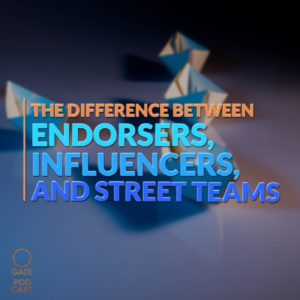
-
Continue Reading "When Agents Fight Over Clients"
When Agents Fight Over Clients
 Sometimes multiple agents all want to work with the same client.
Sometimes multiple agents all want to work with the same client.This can happen to celebrity clients …
Or first-time novelists.
And it’s an interesting phenomenon to watch unfold.
Listen to the podcast episode on “When Agents Fight Over Clients.”
-
Continue Reading "To Work or Not To Work With a Particular Agent"
To Work or Not To Work With a Particular Agent
Thoughts on agents as the publishing industry continues to transform:
Someone wrote to say, “I’ve been offered a contract on my novel. Since I don’t have an agent, should I seek one at this point? And if the agent accepts, should he or she still receive 15% of the deal, even if they didn’t market my book or secure the deal for me? Would it be better to have the agent simply review the contract for a fee?”
There’s quite a debate about this issue. I suppose many agents would say, “Sure — call me!” They’d be happy to get 15% for a deal they’ve done no work on. But my advice would be to think long term. Is there an agent you like and trust — someone you want to work with in the long term? If so, call him or her. Talk about the situation. Explain that you’ve already got a deal. The agent may be willing to take less in order to work with you. They may review the contract for a fee. They may have some insight into your situation. But don’t sign with someone just because you think you need an agent and someone is willing to say yes. If, for example, you’ve got a $10,000 advance coming, make sure it’s worth the $1500 to have the agent assist with this contract. Sure, it may be worth it — if you’ve got a complex situation, or a novel that is going to be made into a movie, or a potential bestseller… those probably call for a good agent to get involved.
That said, it doesn’t really seem fair to me to take the full commission for a book I didn’t sell, though not everyone in the industry agrees with me. You can always talk with a contract-review specialist, who will review your contract for a flat fee (usually somewhere in the $500-to-$1000 range). You can
-
Continue Reading "What Happens When Publishers Cancel Contracts"
What Happens When Publishers Cancel Contracts
Yes, there are times that publishers cancel book contracts.
But it’s never an emotional decision. It’s always done for very specific reasons. So no, your publisher isn’t going to wake up one day and suddenly decide they don’t want to do your book anymore.
Listen to the podcast episode to put your fears to rest.
-
Continue Reading "What You Say Online Matters"
What You Say Online Matters
It matters when you’re trying to secure an agent.It matters when you’re trying to secure a publisher.It matters when you’re trying to win over readers.It matters and it can affect your publishing career.No, this doesn’t mean that you need to be silent about causes and opinions you believe in.It just means you need to be smart about it. Listen to the Gatecrashers episode here. -
Continue Reading "Quick Tips for Self-Publishing Success"
Quick Tips for Self-Publishing Success
 Self-publishing can feel like you’re entering a world you know nothing about.
Self-publishing can feel like you’re entering a world you know nothing about.And so many enter that world and make mistake after mistake after mistake.
How do you avoid that? How do you do it well, right from the start?
The Gatecrashers have a few ideas.
-
Continue Reading "When Is It Time to Self-Publish?"
When Is It Time to Self-Publish?
 Self-publishing can be the greatest decision an author ever makes.
Self-publishing can be the greatest decision an author ever makes.So why does it feel like you’re giving up on your dream of being traditionally published?
It shouldn’t feel that way. There are certain situations in which self-publishing is your best option! Our latest podcast episode helps you identify when self-publishing might be the best fit for you.
-
Continue Reading "Historical Fiction & The Facts – Chats with Chip"
Historical Fiction & The Facts – Chats with Chip
Someone wrote to ask, “What is the author’s responsibility to the facts when writing a historical novel?” She noted she was writing about historical events, but wanted to know if she could change them. In a related note, someone else asked, “What is the ethical line between historical fiction and history?”

As I’ve said on previous occasions, I don’t think there is a line connecting fiction and history. Really. A novelist who is creating a story and weaving in actual people and events probably owes some debt to the reader to try and get the basic historical facts correct, I suppose (though even that is a questionable supposition, and many authors have altered facts and dates in order to tell a better story), but a novel isn’t a textbook. It doesn’t have a restriction that “you must have all your facts correct” or “you must accept the commonly held notions about a character’s motivations.” The author is inventing a story to entertain, or to explore themes and motivations, not to teach history.
So, while I wouldn’t create a story in which the Japanese attack Pearl Harbor on July 11, I see nothing wrong with an author creating a story depicting an interesting twist — that Roosevelt knew about the attack ahead of time, or that the attack was a rogue group of Japanese military, or that it was all a mistake done by aliens who were looking for Hawaiian shirts and a great recipe for mai tai’s.
“It’s a novel.”
It’s a novel. You can choose to tie events closely to historical facts, or you can choose to recreate history as you see fit in order to entertain readers. Have a look at the Quentin Tarantino movie Inglourious Basterds — in which the patrol sent to kill Nazis take out Adolph Hitler and the entire leadership of the Nazi party in a fire they set in a movie theater. (Um,


